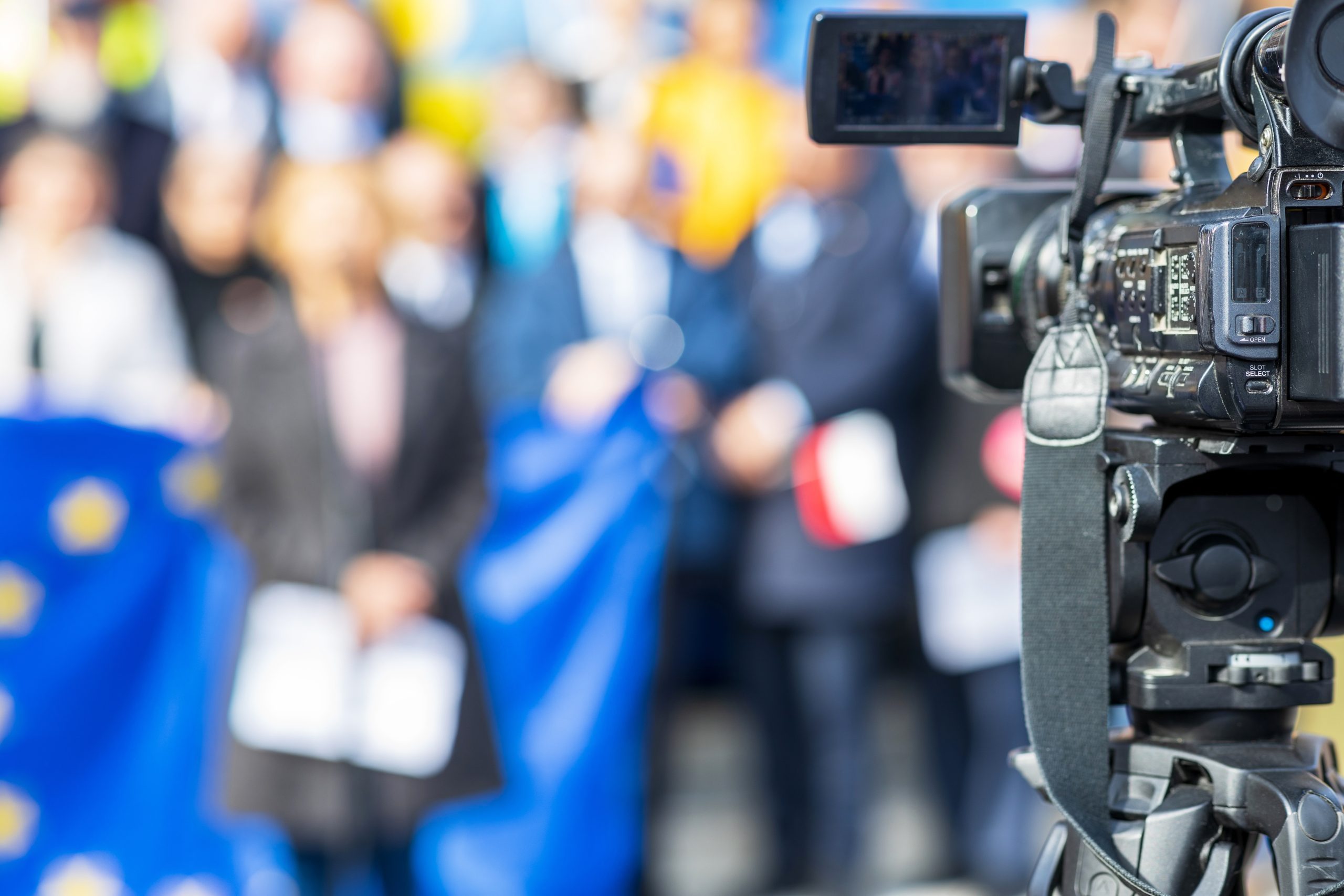János Tamás PAPP: Twitter: an example of why absolute free speech is impossible in a democracy
Twitter, as a global platform for sharing thoughts, ideas, and news, has become an essential tool for communication. However, concerns around free speech, censorship, and regulation on the platform have increasingly come to the forefront of discussion. The beauty of Twitter lies in its simplicity. It allows individuals to express themselves in bite-sized messages, fostering a space for rapid and diverse conversation. Nontheless, alongside this previously unseen opportunity to free expression is a growing concern about how Twitter moderates content and the implications of such moderation on free speech.
Elon Musk, who bought Twitter in for 44 billion dollars has become a pivotal figure not only in technological innovation but also in shaping discourse around free speech, particularly in the Twitter universe. Known for his frequent and often controversial use of the platform, Musk’s relationship with Twitter and free speech has brought about significant discussions and debates.
Musk, a relentless advocate of free speech, uses Twitter as his primary communication channel, broadcasting views that sometimes challenge conventions. This open engagement offers insight into his approach to innovation and disruption, reflecting his unorthodox leadership style. Another aspect of Musk’s interaction with free speech on Twitter pertains to his criticism of content moderation policies. Echoing the concerns of many who perceive big tech as gatekeepers of online discourse, Musk has questioned Twitter’s content moderation decisions, contributing to a broader dialogue about the balance between platform governance and free speech. He announced that he would make Twitter more aligned with the First Amendment, meaning that it would allow all speech that is legal under U.S. law, except for threats of violence and child pornography. Though many hoped for an online oasis of free expression, Twitter with Elon Musk in charge has been anything but.
Soon after the purchase, Musk suspended the accounts of a number of journalists without giving any explanation. It was later discovered that all of these writers had either reported on Musk’s suspension of Twitter accounts that shared the locations of his and other people’s private planes, or had written critically of Musk in the past, or both. Musk’s behavior betrayed his growing penchant for arbitrarily enforcing Twitter’s rules to suit his political or personal preferences. In the following months, Musk has suspended or throttled links to competitors including Mastodon, Instagram, and, most recently, Substack. There are reports about Tweets relating to Ukraine being downgraded on the platform, and tweets containing certain words such as ‘transgender’, ‘trans’, ‘gay’, and ‘bisexual’ also appear to be being hidden, even in direct messages.
But it wasn’t with Musk’s arrival that Twitter became a central player in the online free speech debate. As part of his promise to make Twitter more transparent, Musk commissioned a series of investigative reports based on the company’s internal documents, dubbed the Twitter Files. The reports, which have been published by various media outlets, have revealed how Twitter has handled various issues related to free speech, such as misinformation, hate speech, censorship, moderation, verification, and political bias. The reports have also exposed the tensions and disagreements within Twitter’s leadership and staff over these issues.
Former US President Donald Trump’s relationship with Twitter could be the subject of a whole PhD study. The former first man of the United States of America used his Twitter account as his primary means of communication. During his presidency, he published more than 34,000 posts and gained more than 88 million followers. The operation of the account itself has been a source of concern for Twitter operators, however, although various human rights groups have regularly called on Twitter to delete the president’s profile (because they believe he has repeatedly violated the platform’s terms of use), the platform’s former CEO Jack Dorsey has repeatedly stated that they will not take down the president’s page, because he believes that “people have the right to get first-hand information from their leader”. However, after the latest US presidential election, Trump did not admit defeat, he actively denied it mostly through Twitter posts, which the platform has labelled as untrue from day one. On 6 January, Trump supporters stormed the Capitol building in Washington, D.C., to which Trump also responded on Twitter, but Twitter then deemed the outgoing president’s posts to be in serious violation of the “fair citizenship” provisions of the user agreement and ordered him to delete the posts. As Trump failed to do so, his account was first suspended for 12 hours and later permanently deleted. After the buyout from Elon Musk, Musk reinstated Trump’s account, but to this day the former president is still absent from Twitter.
In July 2022, Twitter filed a lawsuit against the Indian government concerning orders to block certain accounts and tweets. The Karnataka High Court dismissed the case in 2023, imposing a fine of 5 million rupees on Twitter for not complying with the contested orders for over a year. Twitter had argued that the 39 orders issued by the government were against the law and that the government lacked the power to block accounts, only specific tweets. Twitter also claimed the orders lacked proper reasoning and users were not informed of their accounts being blocked. The government’s counter-argument was that the content in question was posted by “anti-India campaigners” and that informing users about the action might lead them to tweet anonymously and cause more harm.
In July 2023, the court sided with the government, stating it had the power to block entire accounts indefinitely and didn’t necessarily need to inform the user. The court’s ruling has sparked concerns about free speech, as it seemingly enables more government control over online content. The dismissal of Twitter’s lawsuit and the ensuing judgment have raised concerns among digital rights experts, as they believe this could limit users’ ability to defend their right to free speech. The judgment is seen as giving the state untrammeled power to issue blocking orders that bypass procedural safeguards. There is now an ongoing debate about Twitter’s next move, whether it will comply with the takedown orders or appeal the judgment.
Also, Twitter’s compliance with government requests for censorship or surveillance has risen from around 50% to over 80% in the six months since Musk’s arrival. The information is based on a largely automated self-report by Twitter to the Lumen database, which monitors government requests to remove content online. According to Lumen, of the 971 government requests it received between 27 October last year – when Musk took over – and 26 April, Twitter fully complied with 808 requests, partially complied with another 154, and did not report a response to 9. Notably, Twitter did not report any outright denials during this period, as pre-Musk Twitter did from time to time.
These controversies have raised important questions about the role and responsibility of Twitter as a platform for public discourse and expression. On one hand, some argue that Twitter should respect and protect the free speech rights of its users, especially those who are marginalized or dissenting from the mainstream views. On the other hand, some contend that Twitter should enforce its own rules and standards to prevent harm and abuse on its platform, especially those that threaten democracy or human rights. The challenge for Twitter is to find a balance between these competing interests and values, while also maintaining its credibility and profitability as a business. Governance over the platform also means governance over content, as a social networking site can decide at any time that a certain type of opinion or an unpopular political group is financially disadvantageous for the platform, and can ban or filter such expressions either openly or without notice. This creates a completely new situation for the democratic public, as there is currently no guarantee that a private company with absolute control over a platform that hosts a large part of public discourse will not at some point significantly distort public debate in its own interests. This is of particular importance because social networking sites provide one of the easiest and quickest, and many would argue most effective, ways to participate in social discourse. It can also be argued that regular users of social networking sites are much more politically active, so that any influence exerted on these platforms can have more direct political consequences than on other media platforms.
Musk’s inability to comprehend that some speech must be restricted in order for other speech to be free is the root of Twitter’s free speech issue. Generally speaking, it is true that if a service is free, it is by definition exploitative of its customers. According to the axiom, if you are not paying for a product, you are the product. But in the case of social media, the outcome is the control over your speech. A platform is meaningless if it turns into a haven for agitators and extremists, hence no one would use it. Social media is extremely similar to society as a whole in that regard. In order to maintain a safe, politically healthy online environment, it is necessary to have some common legal rules to avoid total chaos caused by speech that is useless for public discourse (e.g. actively hate speech) and the arbitrary restriction of speech by private interests. And now Threads, the “Twitter clone” launched by Meta, is a whole new challenge for the platform, but that’s a topic for a different conversation.
János Tamás Papp JD, PhD is an assistant professor at Pázmány Péter Catholic University, Hungary and a legal expert at the Department of Online Platforms of the National Media and Infocommunications Authority of Hungary. He earned his JD and PhD in Law at the Faculty of Law and Political Sciences of the Pázmány Péter Catholic University. His main research fields are freedom of speech, media law, and issues related to freedom of expression on online platforms. He has a number of publications regarding social media and the law, including a book titled „Regulation of Social Media Platforms in Protection of Democratic Discourses”.








